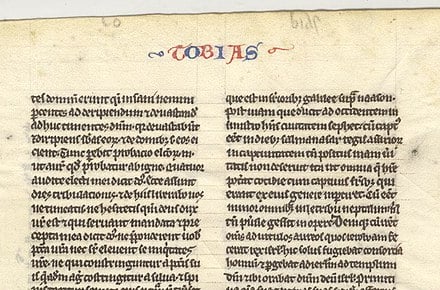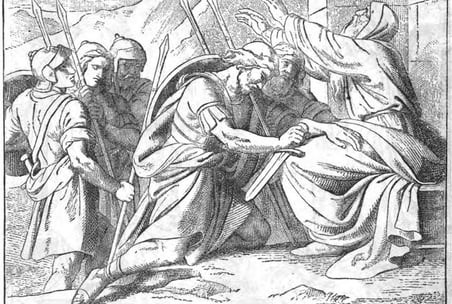The Universal Apocrypha
The Universal Apocrypha is a collection of ancient religious texts that considered biblically canonical within some Christian traditions, but are not included in the canonical Old Testament recognized by most Protestant denominations. Different versions of the collection exist, but the collection used at Theos includes the books of Tobit, Judith, Wisdom, Sirach (also known as Ecclesiasticus), 1st Baruch, and 1st & 2nd Maccabees. Our collection also includes extra chapters of the books of Esther, Psalms, and Daniel.
These books were considered biblical canon in mainstream Christianity until the Protestant Reformation (16th and 17th centuries CE), after which most Protestant denominations rejected them.
While not considered canonical by all Christian traditions, the Universal Apocrypha remains influential and significant in shaping the broader Christian understanding of scripture and theology. The Roman Catholic church as well as the Eastern and Oriental Orthodox churches recognize these books as biblical canon.
These texts are valued for their historical, moral, and theological insights, offering narratives, prayers, and wisdom literature that enrich the understanding of Jewish history and faith during the intertestamental period, which is the time between the Old and New Testaments (roughly 400 BCE to around 0 CE). The Universal Apocrypha provides accounts of courageous individuals who stood against oppression and upheld their faith amidst adversity. The books contain valuable teachings on faithfulness, wisdom, justice, and devotion to God, contributing to the spiritual and cultural heritage of Christianity and providing insights into the practices of ancient Judaism and Hellenistic culture.


Front of a manuscript of the Book of Tobit, from a 13th century French Bible.


A late 19th century depiction of the Maccabees receiving their fathers blessing, as told in the book of 1 Maccabees.
Theos 2024
Translations are not the property of Theos. Individual translations are the property of their respective translators. Theos does not own the rights to any translation of any religious texts.
